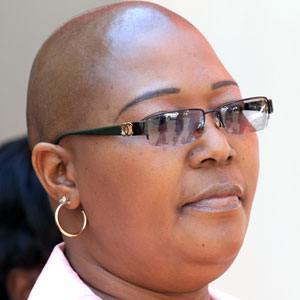
So many women you know may have had breast cancer — friends, neighbours, coworkers or relatives. It seems as if every time you turn around, breast cancer is being talked about in the newspaper or on television.

You may be fearful of developing breast cancer for the first time or of receiving a diagnosis after a mammogram or other testing. If you have had breast cancer, you may be fearful of a possible recurrence or even of the possibility that breast cancer could take your life.
Even though you may have some of these fears, you are not necessarily going to get breast cancer. If you have had breast cancer before, it doesn’t mean that the cancer will recur.
Still, it is normal to have concerns about a disease that you hear about and see around you relatively often — and that you may have experienced yourself or through a loved one. Don’t let the discussion of fear in this section feed into your own fears.
The fear of breast cancer is unlike any other — psychologists and other experts agree on that. The fear can take many different forms, depending upon where you are in the breast cancer experience.
Understand that many of your fears are shared by others. While fears are normal, they are uncomfortable to live with. We will help you figure out how you can manage fear so you can focus on living a happy and healthy life.
Initially, breast cancer may not cause any symptoms. A lump may be too small for you to feel or to cause any unusual changes you can notice on your own. Often, an abnormal area turns up on a screening mammogram (X-ray of the breast), which leads to further testing.
- Chamisa under fire over US$120K donation
- Mavhunga puts DeMbare into Chibuku quarterfinals
- Pension funds bet on Cabora Bassa oilfields
- Councils defy govt fire tender directive
Keep Reading
In some cases, however, the first sign of breast cancer is a new lump or mass in the breast that you or your doctor can feel. A lump that is painless, hard, and has uneven edges is more likely to be cancer.
But sometimes cancers can be tender, soft, and rounded. So it’s important to have anything unusual checked by your doctor . According to the American Cancer Society, any of the following unusual changes in the breast can be a symptom of breast cancer:
- Swelling of all or part of the breast
- Skin irritation or dimpling
- Breast pain
- Nipple pain or the nipple turning inward
- Redness, scaliness, or thickening of the nipple or breast skin
- A nipple discharge other than breast milk
- Alump in the underarm area
- These changes also can be signs of less serious conditions that are not cancerous, such as an infection or a cyst. It’s important to get any breast changes checked out promptly by a doctor.
—breastcancer.org











